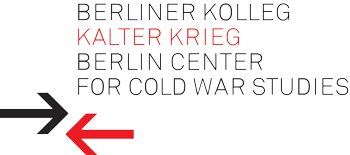Transcending the Cold War. Summits, Statecraft, and the Dissolution of Bipolarity in Europe, 1970-1990
Kristina Spohr and David Reynolds on their new anthology
Due to President Obama's visit, Unter den Linden is closed for security reasons. Please visit the Forum Willy Brandt Berlin through the rear courtyard in Schadowstraße. Please bring official identification.
Kindly confirm your attendence
by sending an email to
info@willy-brandt.de
or by telephone:
030 – 787 7070.
No admission.
The evening takes place in English and German.



The Bundeskanzler-Willy-Brandt-Stiftung and the Berlin Center for Cold War Studies are honored to present Kristina Spohr's and David Reynolds' new anthology: "Transcending the Cold War. Summits, Statecraft, and the Dissolution of Bipolarity in Europe, 1970-1990". The essays collected in this volume offer well-researched insights into key statesmen such as Richard Nixon and Ronald Reagan, Leonid Brezhnev and Mikhail Gorbachev, Willy Brandt and Helmut Kohl, Zhou Enlai and Deng Xiaopeng. They also explore the central issues of the superpowers and arms control, their triangular relationship with China, and the seemingly intractable German question. Bernd Greiner will give a short introduction into the book to then discuss with both the editors about the evolvement as well as the impact of summits since the 1970s and about lessons that might be learned for today.
Kristina Spohr, Associate Professor in International History at the London School of Economics, is a specialist in the International History of Germany since 1945 and interested in the theory and practice of Contemporary History. David Reynolds is Professor of International History at Cambridge and a Fellow of Christ's College. His main research is on U.S. and British foreign policy and on transatlantic relations in World War Two and the Cold War. Prof. Dr. Bernd Greiner is the Direector of the Berlin Center for Cold War Studies and a research fellow at the Hamburg Institute for Social Research.
Voices on the book:
"High-level summit meetings were a staple feature of international politics throughout the 20th century, but at no time were they more frequent or meaningful than in the final two decades of the Cold War. Two distinguished historians, Kristina Spohr and David Reynolds, have compiled an excellent set of essays about the summits from 1970 to 1990 that both reflected and helped to bring about far-reaching changes in the international system. The contributions of the editors themselves and of other leading experts give readers a superb account of the way summits evolved and the impact they had during these momentous two decades." - Mark Kramer, Director, Cold War Studies, Harvard University
"Kristina Spohr and David Reynolds have boldly undertaken one of the most difficult tasks facing international historians — how to situate leaders within the great forces that shape the world and at the same time gauge how much difference those individuals make. In an elegantly written book which calls on a mass of evidence, they argue persuasively that the summits between key figures such as Khrushchev, Kennedy, Gorbachev or George Bush the elder really mattered. Engaging in face to face negotiations with friends and foes did much to prevent the Cold War from becoming a hot one and, at the end, enabled it to wind down peacefully. Transcending the Cold War is a model of diplomatic history which today's leaders could read with profit." - Margaret MacMillan, St Antony's College, Oxford University
"This is a lucid and compelling account of some of the most important summit meetings of the Cold War. It manages to combine a lively narrative and a wonderful compendium of crucial sources, to address the deeper question of how far individual leaders can be responsible for shaping the course of events, and how far they are shaped by them." - Bridget Kendall, Peterhouse, Cambridge; former BBC Diplomatic Correspondent
